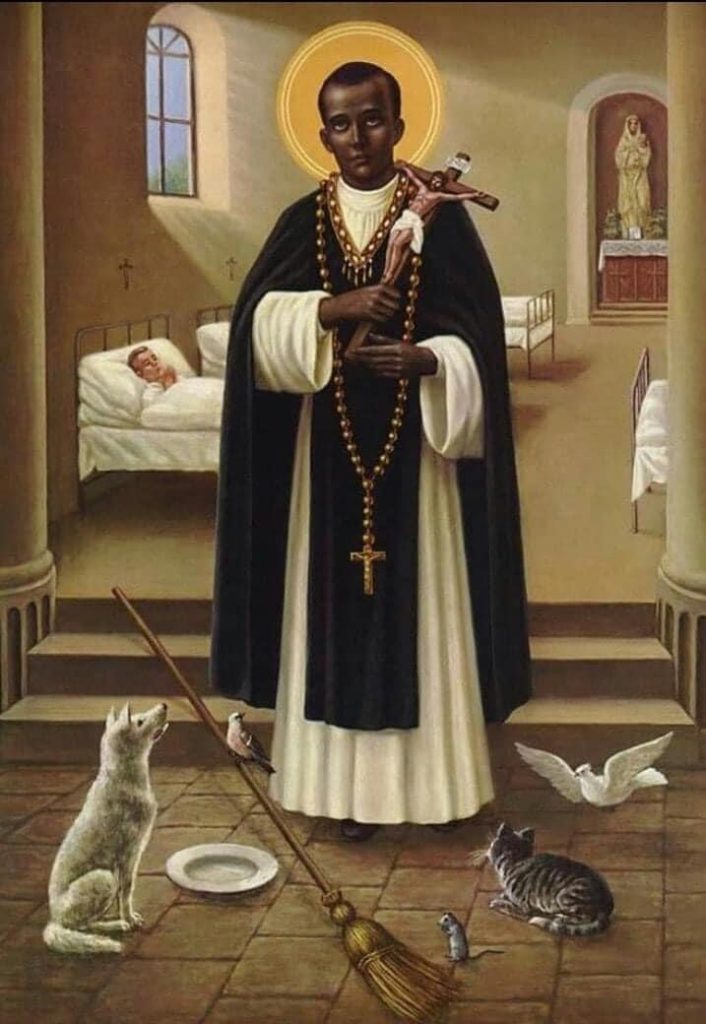As an Associate Chaplain of the Knights of Columbus, I have initiated an annual gathering of Knights to offer mass for our deceased members of the Order. This is to remind us that our work in the Order is not ended in death, but is our continuous love and fraternity beyond death. Today we gather at the St. Therese of Little Flower Catholic Church for a memorial mass for their eternal repose.
Today we also remember the feast of St. Martin de Porres. He was born in 1579, in Lima, Peru. Martín was considered an exception and became a Dominican lay brother in 1610. He was a friar noted for his compassion and humble service to the sick and those who were in need. He was very prayerful and had great devotion to the eucharist, and he was a Dominican brother who attracted every one with his kindness and charity as a humble “Porter,” the one whose duty is to open the door and accept visitors to the monastery. . He died on November 3, 1639, and he was beatified in 1837 by Pope Gregory XVI. He was canonized by Pope John XXIII in 1962. The life of St. Martin inspires us to look to Jesus as our model for the one to imitate.
In today’s gospel, St. Luke tells us one of Jesus’ most well-known parables about the lost sheep. A man had 100 sheep, and he lost one. We cannot understand the logic of a man leaving the 99 to go after the one that is lost. How could it be, abandoning the many for the sake of one? This is the wonder of God’s wisdom and love. Of course, God loves all but He is also concerned with the one that strayed.
In today’s first reading Paul gives witness to the fact that “whatever gains I had; these I have come to consider a loss because of Christ.” It means that whatever St. Paul’s accomplishments were, according to what the world valued, meant less than nothing once he encountered Jesus and realized what He meant to the world. His whole understanding of life is importantly geared to this encounter. God will do much to seek the lost and rejoice for the one who is found as reason for giving us Hope.
Our Christian hope is not purely sentimental, but rational. We must be very smart choosing the way of the Good Shepherd, who always gives preference to those who are lost and seeks them in order to be restored. This is His important mission to rebuild the Kingdom of God. “Let hearts rejoice who search for the Lord” (Ps105).
St. Martin de Porres, pray for us.
Fr. Arlon, osa

